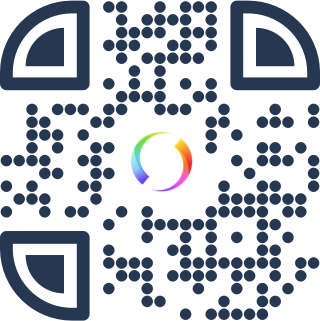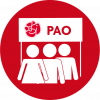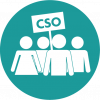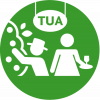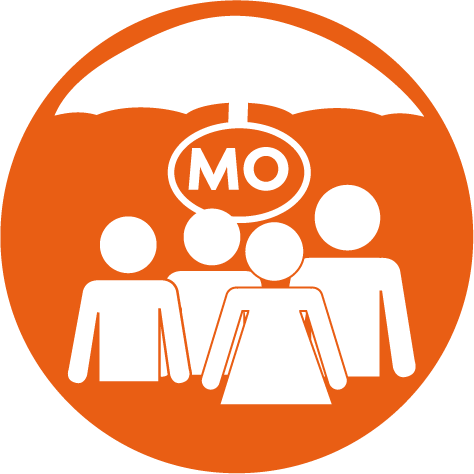Method material
Gender equality

Brochure: Voices for equality
Gender equality work in practice. Here you will meet some of our partners who work for a more equal society in different parts of the world. The brochure also contains discussion questions and facts on gender equality.
Manual: Equality Benefits All
A method manual about working for gender equality and LGBTQ rights. This handbook gives guidance to organisations conducting projects with funds from the Palme Center and is a complement to the project handbook.
Gender checklist
A quick and easy way to take stock of the situation regarding gender equality in your own organisation or project. Use the checklist as a starting point to discuss how you can develop the work for gender equality. (1 page)
Gender budgeting
How do your resources meet the needs of women and men and girls and boys respectively? Use this simple overview to analyse how the project’s or organisation’s resources are distributed from a gender perspective and to start a discussion on how you can use the resources in a more equitable way. (4 pages)
Gender log
The Gender Log is intended as a useful method for tracking lessons learned regarding gender-related work, as well as challenges during the implementation of a programme, from the perspective of those involved.
Gender equality plan
A template you can use in order to check that you have objectives, indicators, activities etc regarding gender equality.
Support questions when planning your operations
Questions that you can use when you are planning and following up your work, to increase gender equality and reduce discrimination. (An excerpt from the Project Management Handbook.) (2 pages)
Method sheet: Gender equality analysis
Each programme or project that is planned together with the Palme Center begins with a gender analysis. It’s a tool used to plan and implement activities in a way that contributes to gender equality. This method sheet explains how it’s done. (4 pages)
Method sheet: Gender equality integration
Gender equality integration is also called gender mainstreaming. It means ensuring that the gender equality perspective is present in each step of the activities. This is a brief introduction. (2 pages)
Gender equality vocabulary
What do we really mean by power structures, feminism and norms? If in doubt, look it up in this little phrasebook on the theme of gender equality. (2 pages)
Powerpoint: Gender equality benefits all!
Use this powerpoint to hold a workshop in your organisation for example, and adapt it as you like. The purpose is to increase the awareness of gender equality, why it is important and what it entails. It provides practical tools for discussing and developing your internal gender equality work. (27 slides)
Toolkit for gender equality training
Do you want to hold a gender equality training of your own? Here’s a presentation and a script you can use.
Gender mainstreaming manual
The manual contains guidelines, exercises and tools related to organisational development when it comes to gender equality. It is for partner organisations of the Palme Center and aims to facilitate the work for gender equality at policy and programme levels.
Report: Feminist policies for climate justice
In order to make the climate transition fair and successful, girls and women need to be recognized as central actors. This report describes policies that can help us build a green and gender-equal world. The Palme Center has contributed a chapter on Just Transition with a gender perspective. (56 pages)
Environment and climate

Short films about Just Transition
Listen to other organisations that the Palme Center is collaborating with around the world and see what Just Transition means to them. Why is it important? How can Just Transition uplift women?
How different actors can work for a Just Transition
All are needed in the fight to transform our economies and societies so that they work for everyone, within the boundaries of the planet. Here’s how trade unions, civil society and progressive political parties can contribute. (5 slides)
Handbook: Organising for a just transition
This handbook aims to support you in organising for a Just Transition. The handbook comes together with a training of trainers. You can take the training as an online course (link below). Use the handbook and course to deepen your own understanding, or to hold your own trainings on Just Transition. The handbook guides you on how to do this.
Support questions when planning your operations
Questions that you can use when you are planning and following up your work, to assess your impact when it comes to environment and climate. (An excerpt from the Project Management Handbook.) (2 pages)
Study: A Just Transition for the Global South
This study looks at what is needed to achieve a Just Transition for countries in the Global South. It collects insights from comrades working for this fair green shift, focussing on the Philippines and South Africa. What works? What are the challenges? How can this movement be strengthened, and how can international cooperation contribute? (122 pages)
Summary: A Just Transition for the Global South
Happy with the short version? This summary of our study ”A Just Transition for the Global South” will give you an overview of the central themes and recommendations. (17 pages)
Climate policy for a Just Transition
With this brochure, we want to show the opportunity that a Just Transition means for the international labour movement and other progressive organisations, and inspire new collaborations. (20 pages)
Report: Feminist policies for climate justice
In order to make the climate transition fair and successful, girls and women need to be recognized as central actors. This report describes policies that can help us build a green and gender-equal world. The Palme Center has contributed a chapter on Just Transition with a gender perspective. (56 pages)
Our definition of Just Transition
The Palme Center’s main way of engaging with the climate and environmental crisis is though a Just Transition. Here we explain what we mean by that.
Online course: Sustainable development
Anti-corruption

Corruption – An Obstacle to Development
Fighting corruption is necessary to improve the living conditions of the world’s poorest. This handbook gives guidance to organisations conducting projects or operations with support from the Palme Center. How can you prevent resources from being used in an unethical way?
Support questions when planning your operations
Here you will find a number of questions to ask yourselves as you plan and follow up your work, in order to combat corruption. (This is an excerpt from the Project Management Handbook.) (1 page)
Conflict sensitivity

The Conflict Sensitivity Lens
Use the analysis questions in the Conflict Sensitivity Lens to get an idea of how your operations can affect, and be affected by, conflicts in the society in which you operate. (3 pages)
Support questions when planning your operations
Here you will find some discussion questions to ask yourselves when planning a collaboration, or following it up, on the topic of conflict sensitivity. (An excerpt from the Project Management Handbook.) (2 pages)
Other topics
Organisational development and risk management
Here you will find a guide to different categories of risk and examples of typical risks under each. The document can be used as support when you do a risk analysis, i e when you identify and manage risks. (7 pages)
Project Management Handbook
This handbook is directed at international partner organisations that conduct operations with funds from the Palme Center. It contains all you need to know, from how to establish a working relationship at the start of a cooperation to how to write an annual report and keep your finances in order.
What is Social Democracy?
A book that aims to describe the ideological tradition of social democracy in Sweden and its development. The book is an introduction to the social democratic ideology, history and policy. It’s authored by the former Swedish Prime Minister Ingvar Carlsson and Anne-Marie Lindgren.
Internal Democracy Toolkit
A material you can use to work on evaluating and strengthening your organisation’s internal democracy.
Design effective trainings
Information and templates that you can use to design your own trainings for successful learning. You can also take our digital course in interactive learning, developed for partner organisations together with Education and Training Unit of South Africa. It focuses on three areas: 1: Designing learning; 2: Interactive activities and 3: Technology.
Checklist for the four integrated perspectives
A checklist with questions you can use to make sure that you have considered the Palme Center’s four integrated perspectives (anti-corruption, conflict sensitivity, environment and climate, gender equality) in all steps of your operations. For example when writing your annual report.







